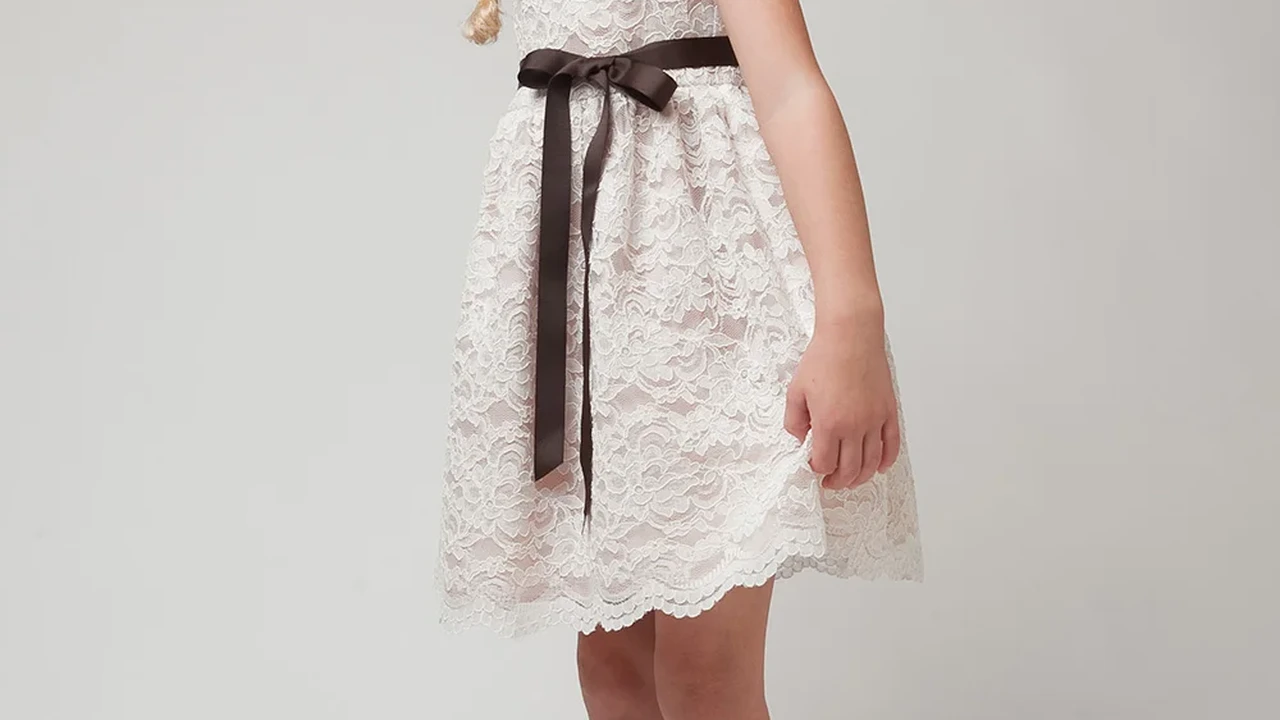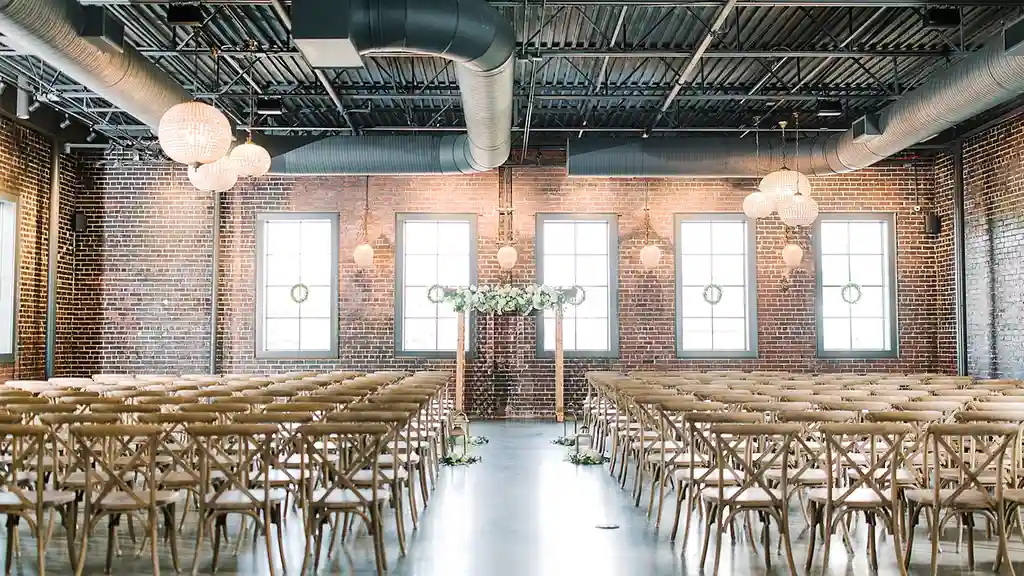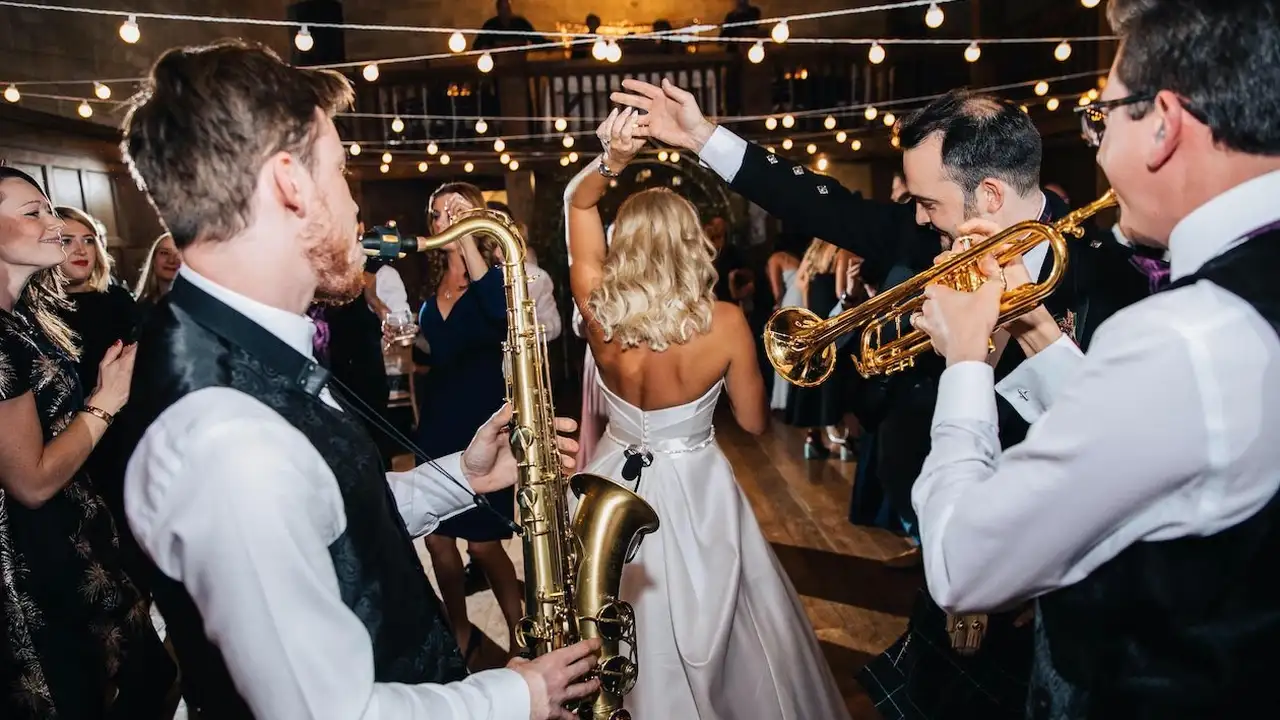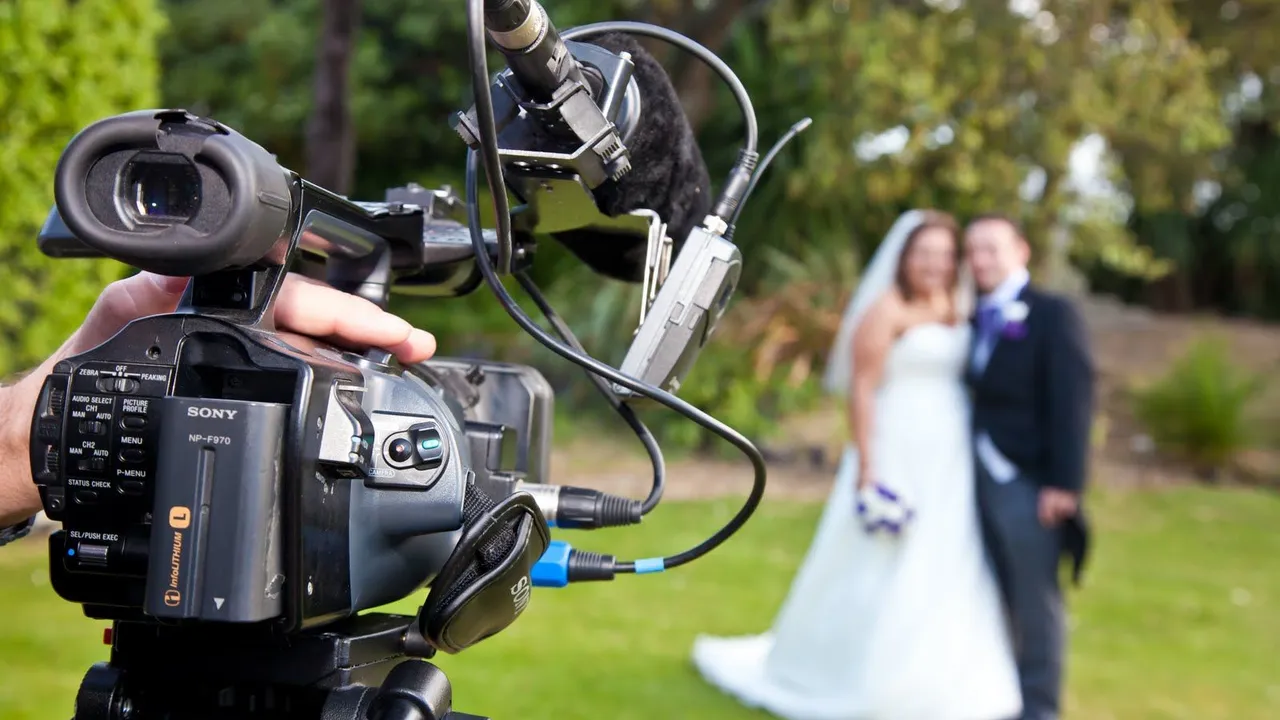10 Questions to Ask Your Wedding Photographer Before Hiring
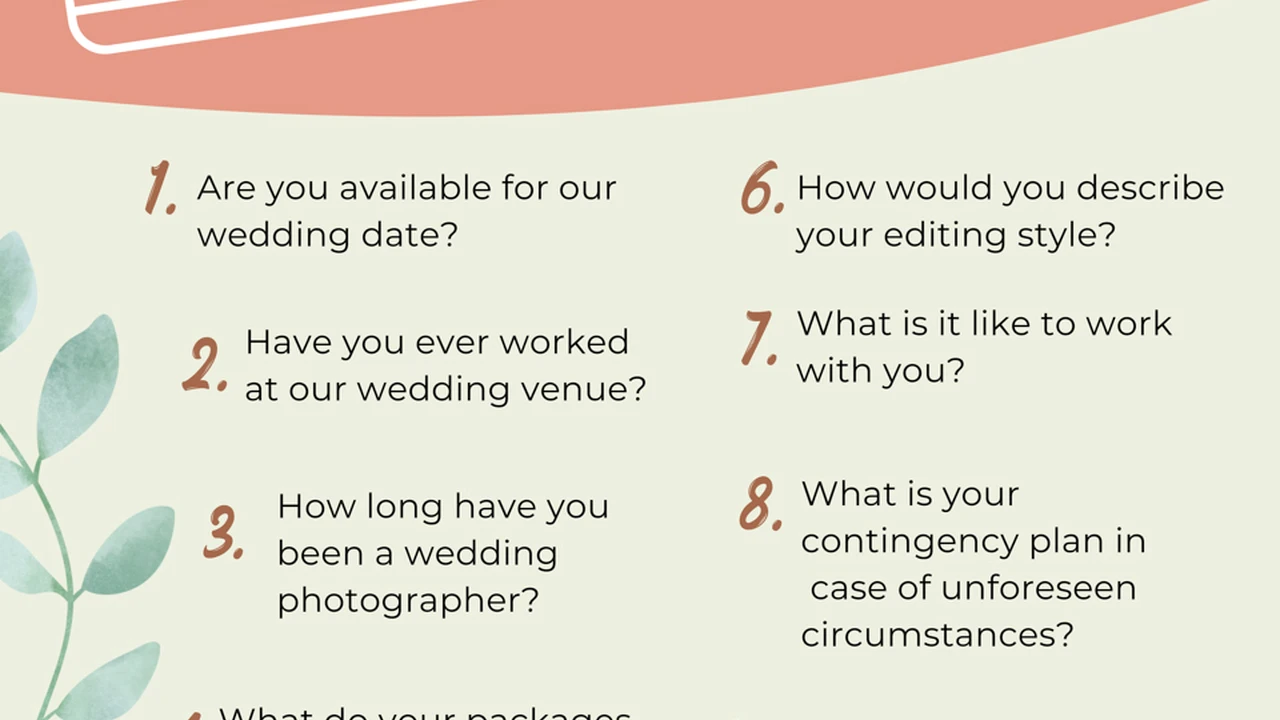
Wedding Photography Styles A Deep Dive to Find Your Perfect Match
Okay, so you're planning your big day! Exciting, right? But amidst all the cake tasting and dress fittings, don't forget about capturing those precious memories. Your wedding photos will be what you look back on for years to come, so choosing the right photographer is HUGE. But how do you even start? Well, let’s start by figuring out what kind of photos you actually like. There are tons of different wedding photography styles out there, and understanding them is the first step in finding your perfect match.
Photojournalistic (or Documentary) Wedding Photography: Think natural, candid moments. The photographer blends into the background, capturing the day as it unfolds without a lot of posing or direction. It's all about authentic emotion and storytelling.
Traditional Wedding Photography: This style is more formal, with posed shots of the wedding party, family portraits, and classic compositions. It's a great option if you want those timeless, picture-perfect images.
Fine Art Wedding Photography: This style focuses on artistic and creative images. The photographer uses light, composition, and editing techniques to create stunning, almost painterly photographs. It often incorporates elements of fashion photography.
Portrait Wedding Photography: As the name suggests, this style emphasizes portraits of the couple and their guests. It's all about capturing beautiful, flattering images that showcase the personalities of the people involved.
Candid Wedding Photography: Similar to photojournalistic, but often with a bit more direction. The photographer might prompt certain moments or interactions to create more visually interesting images.
Choosing Your Style: Consider your personality and the overall vibe of your wedding. Do you want a relaxed and natural feel, or something more formal and glamorous? Look at portfolios of different photographers and see which styles resonate with you. Don't be afraid to mix and match! Some photographers are skilled at blending different styles to create a unique and personalized collection of images.
Wedding Photographer Pricing and Packages Understanding the Cost of Memories
Alright, let's talk money. Wedding photographers can be a significant investment, so it's important to understand how they price their services. Prices vary widely depending on experience, location, and the services included in their packages.
What affects the price? Location, experience, the time of year (peak wedding season means higher prices), and the photographer's brand all play a role in how much you’ll pay.
Common Wedding Photography Packages: Most photographers offer packages that include a certain number of hours of coverage, a set number of edited images, and sometimes extras like an engagement shoot or a wedding album.
Basic Package: Typically includes a few hours of coverage (maybe 4-6 hours), a limited number of edited images, and online delivery of the photos. This is a good option if you're on a tight budget or only need coverage of the ceremony and some key reception moments. Expect to pay around $1500-$3000 for this.
Standard Package: Includes more hours of coverage (8-10 hours), a larger number of edited images, and often includes an engagement shoot. This is a popular option for couples who want full coverage of their wedding day. Expect to pay around $3000-$5000 for this.
Premium Package: Includes full-day coverage (10+ hours), a large number of edited images, an engagement shoot, a wedding album, prints, and potentially other extras like a second photographer or a photo booth. This is the most comprehensive option and is ideal for couples who want to capture every detail of their wedding day. Expect to pay around $5000+ for this.
Hidden Costs to Watch Out For: Be sure to ask about travel fees, overtime charges, and the cost of additional prints or albums. Also, find out how long it will take to receive your edited images.
Negotiating with Your Wedding Photographer: Don't be afraid to negotiate! See if the photographer is willing to customize a package to fit your needs and budget. You might be able to remove certain items or services to lower the overall cost.
Essential Questions About Wedding Photography Style and Experience
Now for the nitty-gritty! Before signing on the dotted line, you need to ask some key questions to make sure the photographer is a good fit for you.
Question 1: "Can I see a full wedding gallery?" Don't just look at their highlight reel. Ask to see a complete gallery from a recent wedding to get a better sense of their shooting style and consistency throughout the day.
Question 2: "How would you describe your shooting style?" This will help you determine if their style aligns with your vision. Listen for keywords like "photojournalistic," "traditional," or "fine art."
Question 3: "Do you have experience shooting at my venue (or similar venues)?" Familiarity with the venue's lighting and layout can be a huge advantage.
Question 4: "Do you have backup equipment and a backup plan in case of emergencies?" A professional photographer should always have backup equipment and a contingency plan in place.
Question 5: "What is your approach to editing?" Do they prefer a natural look, or a more stylized, heavily edited look? Make sure their editing style matches your preferences.
Question 6: "How long will it take to receive my edited photos?" Get a clear timeline for when you can expect to receive your photos.
Question 7: "What is your cancellation policy?" Understand the terms of the contract in case you need to cancel or reschedule your wedding.
Question 8: "What rights do I have to the images?" Typically, you'll receive a print release, which allows you to print the photos for personal use. However, the photographer usually retains the copyright.
Question 9: "Do you have insurance?" This is important in case of accidents or damage to equipment.
Question 10: "What is your payment schedule?" Understand the payment schedule and what forms of payment they accept.
Wedding Photography Gear and Product Recommendations What the Pros Use
Ever wonder what kind of gear the pros use? Here’s a glimpse into the world of wedding photography equipment, along with some product recommendations.
Cameras:
Sony a7III: A popular choice for its excellent low-light performance and versatile features. Around $2000 (body only). Perfect for capturing those dimly lit reception moments. Compared to the Canon EOS R6, the Sony offers slightly better low-light performance, but the Canon has a more intuitive menu system. The Sony is generally considered a better value for the price.
Canon EOS R6: Another excellent full-frame mirrorless camera with fast autofocus and impressive image quality. Around $2500 (body only). Great for capturing fast-paced moments like the first dance. The Canon's autofocus is incredibly reliable, making it a great choice for capturing candid shots.
Lenses:
Sigma 35mm f/1.4 DG HSM Art: A versatile prime lens that's great for capturing both wide-angle shots and portraits. Around $900. Use it for getting those environmental portraits of the bride and groom. Compared to Canon's 35mm f/1.4 L lens, the Sigma offers similar image quality at a lower price point. It's a fantastic value for the money.
Canon EF 70-200mm f/2.8L IS III USM: A telephoto zoom lens that's perfect for capturing candid moments from a distance. Around $2000. Use this during the ceremony to get close-up shots without being intrusive. This lens is known for its sharpness and image stabilization. It's an investment, but it's well worth it for the quality it provides.
Godox V1 Flash: A powerful and versatile on-camera flash that can be used to create beautiful, natural-looking light. Around $300. Use it to fill in shadows during outdoor portraits or to add a pop of light to indoor shots. Compared to other on-camera flashes, the Godox V1 offers a unique round head design that creates softer, more pleasing light. It's a great alternative to traditional speedlights.
Wedding Photo Album and Print Options Preserving Your Memories for a Lifetime
Okay, you've got the photos. Now what? Don't let them sit on your hard drive forever! Here are some options for preserving your wedding memories.
Wedding Albums: A classic and timeless way to showcase your wedding photos. Look for albums with archival-quality paper and durable binding.
Leather Craftsmen Albums: High-end, handcrafted albums with beautiful leather covers and thick, lay-flat pages. Prices start around $500. These are heirloom-quality albums that will last for generations.
Blurb Wedding Albums: A more affordable option with a variety of sizes, paper types, and cover options. Prices start around $100. Blurb offers a user-friendly design tool that makes it easy to create your own custom album.
Prints: Printing your favorite photos is a great way to display them in your home and share them with family and friends.
Metal Prints: Vibrant and durable prints that are perfect for displaying in modern homes. Prices vary depending on size. Metal prints offer a unique look and feel. They're scratch-resistant and easy to clean.
Canvas Prints: A classic and affordable option for displaying your photos on canvas. Prices vary depending on size. Canvas prints add texture and warmth to your photos.
Digital Frames: A convenient way to display a slideshow of your wedding photos. Look for frames with high-resolution screens and Wi-Fi connectivity.
Wedding Photography Timeline and Coordination Creating a Smooth and Stress-Free Day
A well-planned timeline is essential for a smooth and stress-free wedding day. Here's how to coordinate with your photographer to create a timeline that works for everyone.
Pre-Wedding Consultation: Meet with your photographer before the wedding to discuss your vision, timeline, and any specific shots you want. This is a great opportunity to get to know your photographer and build a rapport.
Creating a Detailed Timeline: Work with your photographer to create a detailed timeline that includes all the key moments of the day, from getting ready to the last dance. Be sure to allocate enough time for each activity, and factor in travel time between locations.
Sharing the Timeline with Other Vendors: Share the timeline with all your other vendors, including the wedding planner, caterer, and DJ. This will help ensure that everyone is on the same page and that the day runs smoothly.
Designating a Point Person: Designate a point person (usually a bridesmaid or groomsman) who can help coordinate with the photographer on the day of the wedding. This person can help gather family members for photos and ensure that the photographer has access to all the important locations.
Being Flexible: Things don't always go according to plan on a wedding day. Be prepared to be flexible and adapt to unexpected changes. Trust your photographer to capture the best moments, even if things don't go exactly as planned.
Wedding Photography Contracts and Legal Considerations Protecting Yourself and Your Investment
Before hiring a wedding photographer, it's crucial to review the contract carefully to protect yourself and your investment. Here's what to look for:
Scope of Services: The contract should clearly define the scope of services provided, including the number of hours of coverage, the number of edited images, and any other included services.
Payment Schedule: The contract should outline the payment schedule, including the deposit amount and the due dates for remaining payments.
Cancellation Policy: The contract should specify the terms of cancellation, including any penalties or refunds.
Copyright and Usage Rights: The contract should clarify who owns the copyright to the images and what usage rights you have.
Liability: The contract should address liability in case of accidents or damage to equipment.
Force Majeure: The contract should include a force majeure clause that protects both parties in case of unforeseen circumstances, such as natural disasters or illness.
Reviewing the Contract with an Attorney: If you have any concerns about the contract, it's a good idea to have it reviewed by an attorney before signing.
Wedding Photography Editing Styles and Techniques Enhancing Your Images for a Polished Look
Editing plays a crucial role in the final look of your wedding photos. Here's a look at some common editing styles and techniques:
Natural Editing: This style aims to enhance the natural beauty of the images without making them look overly processed. It typically involves adjusting the exposure, contrast, and color balance.
Light and Airy Editing: This style creates a bright, cheerful, and romantic look. It often involves increasing the exposure and softening the colors.
Dark and Moody Editing: This style creates a dramatic and atmospheric look. It often involves decreasing the exposure and increasing the contrast.
Black and White Editing: This style creates a timeless and classic look. It involves converting the images to black and white and adjusting the contrast and tones.
Retouching: This involves removing blemishes, smoothing skin, and correcting any other imperfections in the images.
Discussing Your Editing Preferences with Your Photographer: Be sure to discuss your editing preferences with your photographer before the wedding. Show them examples of images with editing styles that you like.
Wedding Photography Posing Tips and Tricks Looking Your Best on Your Big Day
Posing can be awkward, but it doesn't have to be! Here are some tips and tricks for looking your best in your wedding photos:
Relax and Be Yourself: The most important thing is to relax and be yourself. Don't try to force a pose that feels unnatural.
Follow Your Photographer's Guidance: Your photographer is a professional and will guide you through the poses. Trust their expertise.
Pay Attention to Your Posture: Stand up straight and keep your shoulders back.
Angle Your Body: Angling your body slightly can create a more flattering silhouette.
Smile Naturally: Think of something that makes you happy to create a genuine smile.
Interact with Your Partner: Focus on interacting with your partner, rather than posing for the camera.
Wedding Photography Trends and Inspiration Staying Up-to-Date with the Latest Styles
Wedding photography trends are constantly evolving. Here's a look at some of the latest styles and inspiration:
Candid and Unposed Moments: Capturing authentic and unposed moments is more popular than ever.
Documentary-Style Photography: This style focuses on telling the story of the day as it unfolds naturally.
Film Photography: The use of film cameras is making a comeback, creating a vintage and nostalgic look.
Creative Lighting Techniques: Photographers are using creative lighting techniques to create unique and artistic images.
Destination Weddings: Destination weddings are becoming increasingly popular, offering stunning backdrops for wedding photos.
Finding Inspiration: Look for inspiration on wedding blogs, social media, and in wedding magazines. Create a mood board of images that you love to share with your photographer.
:max_bytes(150000):strip_icc()/277019-baked-pork-chops-with-cream-of-mushroom-soup-DDMFS-beauty-4x3-BG-7505-5762b731cf30447d9cbbbbbf387beafa.jpg)



